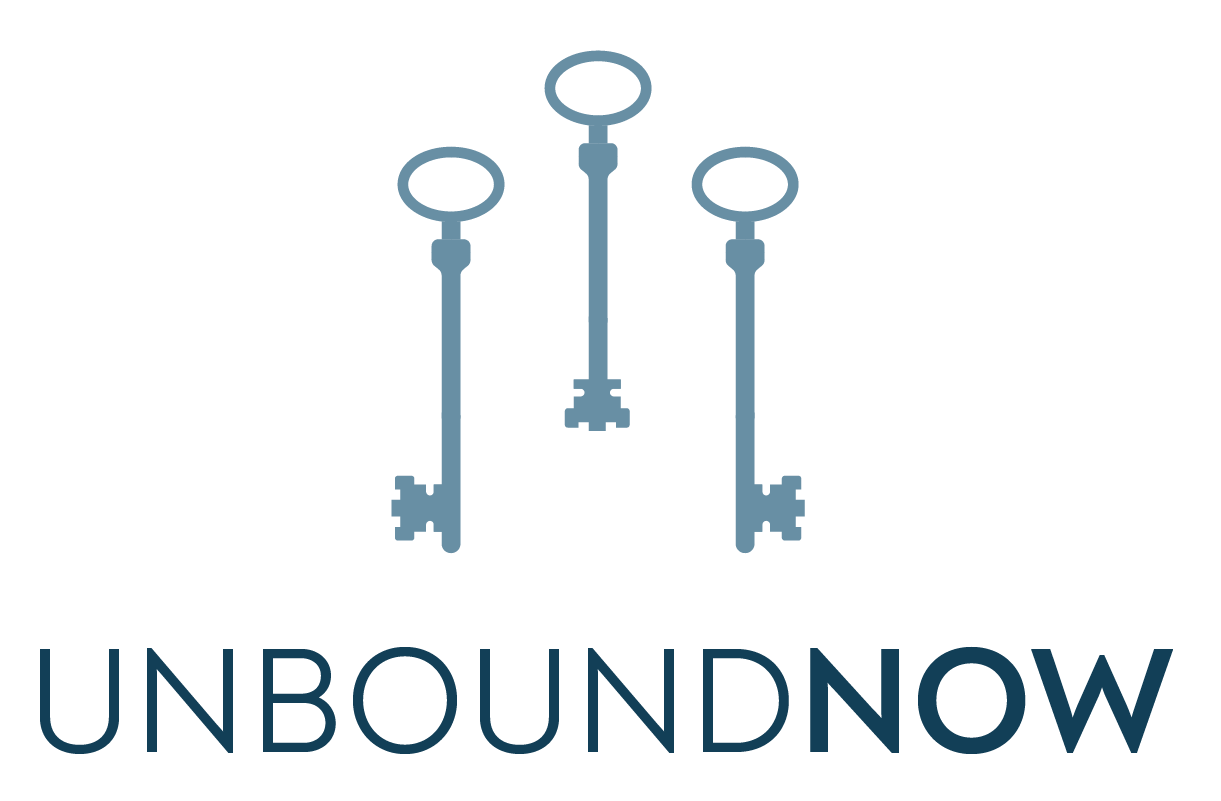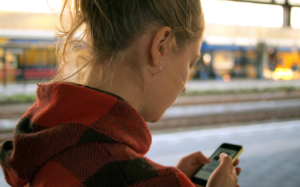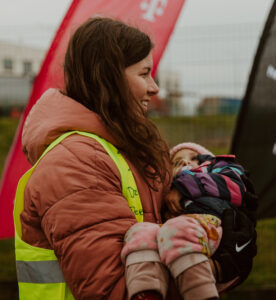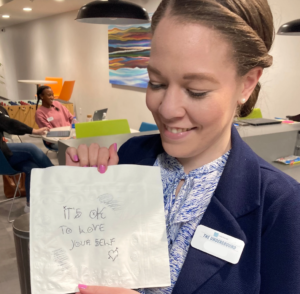
Many children are made more vulnerable to exploitation or trafficking as a result of feelings of inadequacy or rejection from their families. Unbound’s Youth Prevention Program provides a unique opportunity to connect with children in a way that helps them feel safe to share their feelings and seek assistance.
As the Director of Youth Prevention, one of my favorite things to do is facilitate a 5-week series to empower students with an in-depth understanding of human trafficking. I am a licensed facilitator for both Love146’s Not a #Number curriculum and the iEmpathize Empower Youth Program. Spending 5 weeks with the students gives me a chance to get to know them, build trust, and create space for them to share their vulnerabilities and learn how to overcome them.
I am continually amazed at how students will open up and share their deepest fears and pains.
At the beginning of each class, I provide blank index cards to the students. I tell them they are allowed to ask any question or share anything that is important to them. I let them know that if their questions would best be addressed privately, they can leave their initials on the card and I will carve out time to visit with them one-on-one.
The first week, the questions are usually pretty basic. They ask things like, “Do you like your job?” “What made you want to do this job?” “Why do I have to attend this school?” They don’t know yet if they can trust me, so they are testing the waters.
On week two, I open the class by reviewing the lesson from week one, stating our objectives for this week, and then letting them know I will be addressing the questions they turned in on their index cards.
When I begin to respond to the students’ questions, they lean in. They seem surprised that I am taking the time to address their questions and concerns.
When I collect the cards from week 2, the questions are much more specific, and heartbreaking.
The students need a place to share their pain. A safe place where their feelings will be respected. I receive questions about how to handle the death of a loved one, how to manage abuse from a parent, questions on bullying, rape, and neglect….
I look over all the cards and realize some are outcries. Most are anonymous. I share them with the counselor, and we discuss the best strategy to get the students to identify themselves so they can get the help they need. The counselor tells me, “They are starting to trust you, build on that.”
Those words nearly take my breath away. She is right. These students feel safe and are sharing some of their most intimate and painful feelings.
I pray about how to respond to the students’ questions. I realize that I have to carry the responsibility of “Sonya the adult,” but with a level of compassion and understanding that “Sonya the 12-year-old” would have appreciated.
After the next session several students stay and ask to talk. One is a beautiful middle schooler, tiny for her age but with a thoughtfulness and maturity that extends well past her years.
She thanks me for Unbound coming to their school and teaching them about human trafficking. Then she asks me, “Ms. Sonya, what do you do when your mom doesn’t want you anymore?”
This child is feeling the ultimate form of rejection. Carrying a sense of rejection from one’s own family, those who are supposed to love and care for you, introduces a tremendous vulnerability into a child’s life. These young people can easily be exploited by someone pretending to fill that void. This is a trafficker’s dream target.
This student goes on to describe her current home life. She is in a good situation, living with others who care for her, feeling safe and protected. Knowing she is not in immediate danger I do my best to encourage her. “Sometimes adults can love their children greatly, but the pain they feel becomes so overwhelming, it becomes an act of love for them to step away from their children, by allowing their child to be placed in a home, filled with love. And that child can experience love with a new family, much like what you are currently experiencing.”
She pauses for a moment to reflect on my words, thanks me, and then says, “I didn’t really think about the fact that my Mom giving me to someone else was an act of love, I always thought it was because she didn’t want me. Thank you for helping me to see how I wasn’t the only one hurting.”
The student and I hug and she leaves the classroom armed with a new sense of understanding and appreciation for her mother, but most importantly, the knowledge that she is loved! This is what prevention looks like. Empowering students to stay safe by reducing the vulnerabilities in their lives. Speaking value into them, one by one.
By Sonya Brooks
Director of Youth Prevention
Unbound Fort Worth




